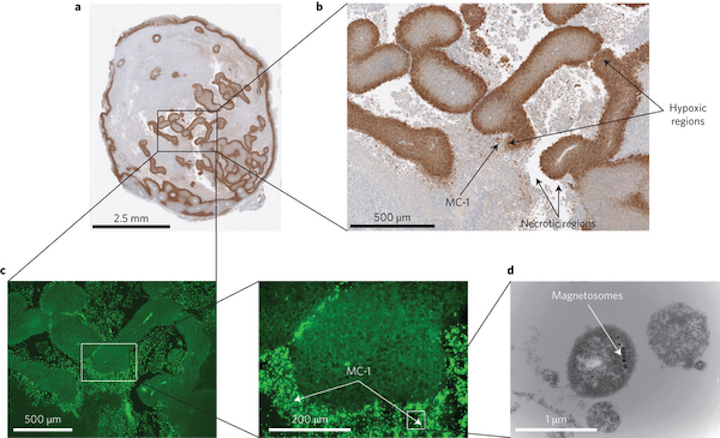Sylvain Martel and Polytechnique Montréal and McGill University colleagues have developed nanorobotic agents that can specifically target active cancerous cells of tumors. Optimal targeting could help preserve surrounding organs and healthy tissues, and allow reduced dosage.
The nanorobotic agents can autonomously detect oxygen-depleted tumour areas, and deliver the drug to them. These “hypoxic” zones are often resistant to therapies.
According to professor Martel: “This innovative use of nanotransporters will have an impact not only on creating more advanced engineering concepts and original intervention methods, but it also throws the door wide open to the synthesis of new vehicles for therapeutic, imaging and diagnostic agents. Chemotherapy, which is so toxic for the entire human body, could make use of these natural nanorobots to move drugs directly to the targeted area, eliminating the harmful side effects while also boosting its therapeutic effectiveness.”
Wearable Tech + Digital Health + NeuroTech Silicon Valley – February 7-8, 2017 @ Stanford University
